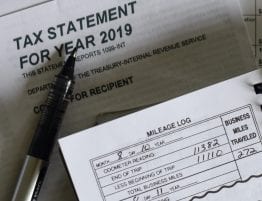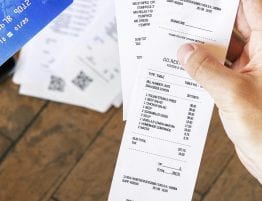
Numerous individuals judge the success of their tax planning by the size of the refund they receive. Although the amount of refund gained is one indication of how well you managed your money, it’s not the only indicator. Sometimes, it means you had been overpaying the IRS all year.
If you are unsure of how much you will owe in a year, you can be overpaying excessively through your withholdings. Withholding more than you owe might net you a larger refund at the end, but it’s an interest-free loan that you give the IRS, which they return to you at the end of the financial year. That’s your money the IRS sends back after keeping it throughout the year, not a bonus check. The Washington Post shares how you can avoid overpaying Uncle Sam.
“Check your withholding to make sure you’re having the right amount of money withheld for taxes.
For instance, if you’re carrying high-interest credit card debt, don’t intentionally get a large refund. Instead, get your money during the year and pay down that debt by updating your W-4. As of March 15, the average refund was $2,957.
Paying more in taxes is a way out if you are unsure of how much you owe and if you are filing for an extension because of an emergency. In such a situation, paying more throughout the year is a way to avoid underpaying, which incurs penalties and interest that results when paying less.
Apart from special situations, it’s good to know how much you owe so that you don’t end up overpaying, even if it appears that you will get a bigger refund at the end. When you pay the IRS more than you owe throughout the year, it’s like keeping your money in the bank without receiving any interest on it. It’s a lose-lose situation.
Change in Situation
Your tax withholdings can change due to fluctuations in your personal or financial situation. If you got married, had a child, bought a home, or got a promotion, all these will impact your taxes. The Washington Post lists situations that might necessitate a change in your withholding, according to the IRS:
“– You had a large refund for 2018.
– You ended up with a tax bill for 2018.
– You’re not sure about the adjustments you made to your withholding.
– You’ve itemized in the past but this year took the higher standard deduction under the new law.
– You got married or had another major life change.
– You have outside income not covered by withholding.
– You are a two-wage-earning household.
– You receive a pension or Social Security.
It’s still early enough in the year to help position yourself for a less frustrating 2019 tax season. But it starts by checking your paycheck.”
Fill out the form for a free and confidential consultation.








